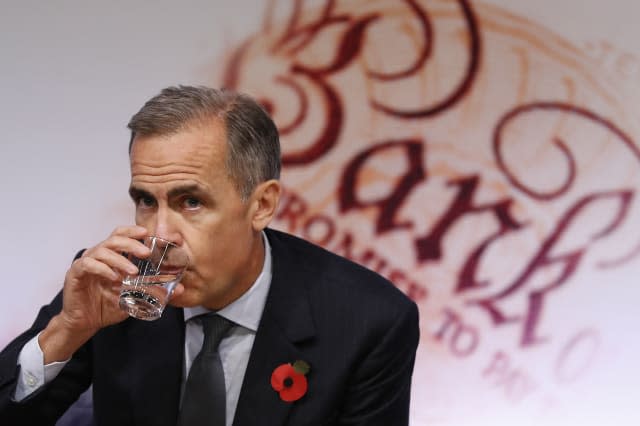Bank forecasts more inflation: what it means for you

The Bank of England has issued its inflation forecast, and it makes worrying news for us all. It says inflation during 2017 will be 2.7% - up from a prediction of 2% back in August. The experts agree that we will finally see prices at the supermarket rise, along with a number of key costs. So where will inflation hit you hardest?
The supermarket
The Bank has warned that the collapse in the pound means that the cost of absolutely everything we import will go up: this includes food. Lisa Caplan, Head of Financial Advice at Nutmeg, says that so far we have been protected by fierce price competition at the supermarkets, and pressure from the discount players. However, she warns that the price of all imports will rise 9% by early summer next year, and this is eventually going to feed through into supermarket prices.
The high street
The cost of clothing is also expected to rise significantly - because so much of our clothes are imported. Given the fact that price competition in the clothing sector is less full-on, retailers will be faster to pass price rises onto consumers. You could, therefore, easily see the cost of clothes up almost 10% well before next summer.
Holidays
Caplan says: "The Bank reports that the pound has fallen 21% since its peak in November 2015, and 15% since Brexit. This is a massive blow to UK holidaymakers, and the Bank offers little hope that the currency will recover its strength in the foreseeable future." This means that having exactly the same holiday as you did last year will cost you at least a fifth more. As holiday companies put up their prices to take account of the currency shift, there's also a real risk that they take the chance to add an extra slice of profit for themselves too.
Savings
The environment is downright miserable for savers nowadays. Interest rates remain at rock bottom, so inflation is eating away at the value of their savings. Caplan says: "There is no real respite for savers: rates will remain very low, and current bank interest rates will not be recovering in the foreseeable future. So savers who want their money to work harder for them, and beat inflation, will need to look at investing their money."
She adds: "This is a double blow for people who live off their savings. The cost of living will rise but for now interest rates remain at historic lows. So savers will be getting little interest, but will have to spend more.
Credit card bills
There's a real risk on the horizon. Prices are rising, and while some people will tighten their belts even further, there's a risk that others will turn to borrowing. Caplan says: "Consumer credit should remain cheap - so families who sometimes rely on credit cards or payday loans should still have access to this kind of credit should they need it. But increasing your household debt is a timebomb that'll be triggered when interest rates do eventually rise."
The good news
There is one group of people for whom inflation is better news: borrowers. Interest rates are likely to stay low in this environment, and inflation will eat away at the value of the outstanding loan in the same way it eats up savings - so loans will look less dramatic than when they were first taken out.
And the big question
Just how badly all this inflation hits us will depend on what happens to wages. If they keep pace with inflation then some of our biggest concerns will ease, because we will have more money to spend on more expensive groceries and holidays. If, however, they fail to keep pace, we will all feel the pain.
Things don't look brilliant for wages, and back in May, the Chartered Institute of Personnel and Development estimated that pay growth would be just 1.7% by May 2017. We can only hope they were wrong.




